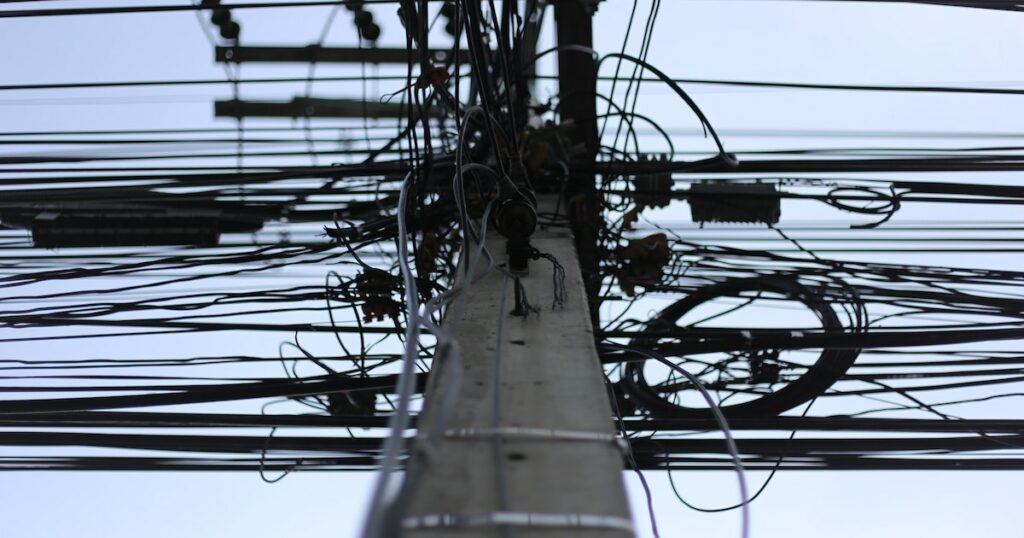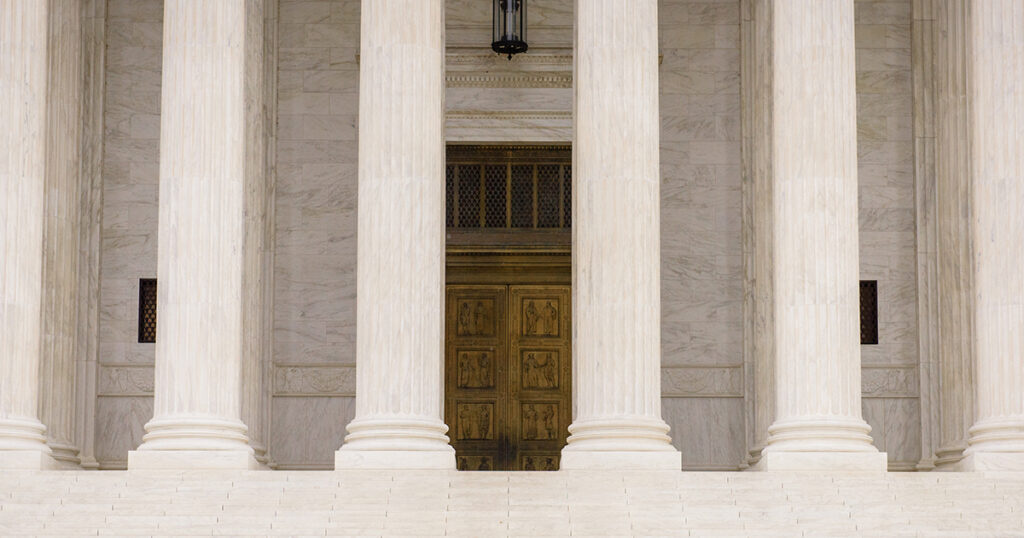Distributed network. Total connectivity. Universal access.
Before there was a global system of interconnected computers, God made a global network of people connected in Christ Jesus. Before the internet connected the world, God gave the world His only Son to mend our sin-severed connections and offer us universal access to the way, the truth and life.
God has made Himself accessible to all people through Jesus: “Through him we have also obtained access by faith into this grace in which we stand, and we rejoice in hope of the glory of God” (Rom. 5:2). This God-given access by faith offers total connectivity with Jesus. Our sin and shame are transferred to Him, while His perfect righteousness and holiness are transferred to us. Through Baptism and the gift of the Holy Spirit, sinners are linked with Jesus and connected to God.
Linking with Jesus means linking with all others who are linked to Him. The Body of Christ — the church — is a worldwide web of believers in Christ Jesus: “For just as the body is one and has many members, and all the members of the body, though many, are one body, so it is with Christ” (1 Cor. 12:12). The Body of Christ links people together across different continents and countries, zip codes and cities, languages and skin colors, socioeconomics and educational degrees. In Christ Jesus, the church is a distributed network linking together heaven and earth, past and present, now and not yet.
The internet has given the world a new way of speaking. Jesus has given the world an entirely new way of being.
The Internet of Things
A little over 50 years ago, the internet was in its infancy. An early form of the internet — the Advanced Research Projects Agency Network — began with just four computers. This project was a collaboration between the United States Department of Defense and several universities. In 1969, the network consisted of computers at UCLA, Stanford University, UC Santa Barbara and The University of Utah.
On Oct. 29, 1969, the first message was sent through the internet. This message was sent from a computer on the campus of UCLA to one on the campus of Stanford. A professor at UCLA, along with a graduate student, attempted to send a message to one of the other computers on the network. The message was supposed to be the word “LOGIN.”
They typed the letter “L.” Then they typed the letter “O.” And just two letters in, the system crashed.
An incomplete message — “LO” — was the first-ever message sent via the internet. It took roughly an hour for those two letters to make their way up the coast to Stanford’s campus. While this may be unimpressive compared to today’s technological capabilities, it was a massive moment in the history of the internet.
Over the past 50 years, the internet has expanded beyond its original four computers. There are now significantly more internet-connected devices than there are humans in the world. Intel estimates that there are presently around 200 billion internet-connected devices in the world. That is 26 internet-connected devices for every single human being on earth.
Over the last decade, many new kinds of devices are connecting to the internet. Known as the “Internet of Things” (IoT), these internet-connected devices include common items such as thermostats, light bulbs, ovens, refrigerators, speaker systems and door locks. While the majority of IoT applications are in commercial settings such as factories and buildings, consumer applications have recently expanded also.
Always Watching, Listening and Learning
IoT technology promises to improve both the world and individual well-being. There is much more to IoT than adjusting the thermostat or turning off a light while sitting on the couch.
Cochlear implants, for example, can now be equipped with internet-connected sensors that detect a fall or seizure. Similarly, pacemakers include remote health monitoring and emergency notification systems. Household items can communicate with utilities companies to optimize energy production and decrease energy demands. IoT devices can provide early detection for earthquakes and tsunamis. There are endless ways in which IoT might benefit the world.
Receiving the benefits of IoT does require a tradeoff. In order for smart devices to be smart, they must always be watching, listening and learning. Smart speakers always listen for certain activation words, such as “Alexa,” “Siri” or “Hey Google.” Wearable devices learn your patterns and personal metrics better than your spouse. Security cameras and baby monitors keep an ever-vigilant watch for anything and everything.
(Consider how many devices could be watching you, listening to you or learning your behaviors right now as you read this).
Should we create a world in which technology is always watching, listening and learning? Is it good to have all of our movements, conversations and preferences tracked? Are the benefits of IoT worth the constant surveillance?
While the ever-present watching, listening and learning of some IoT devices has produced some good, we must ask whether those watching us have our best interests in mind. Do we flourish as a result of being so intimately known? Those watching, listening and learning could be motivated by evil and are often motivated by personal gain. In these circumstances, constant surveillance and tracking becomes onerous.
In the 18th century, the English philosopher Jeremy Bentham devised a concept known as the panopticon. Bentham designed a rotunda prison with all the inmates positioned around a single guard post. The guard post at the center of the prison was concealed in such a way that the prisoners never knew whether or not they were being watched or heard. Because the guard post was fully concealed, it could be empty and the prisoners would have no way of knowing. Since the guard might be watching or listening, they had to assume that they were always being watched.
Smart homes with listening virtual assistants, learning thermostats and refrigerators, and watching security cameras are not exactly a panopticon prison. But they are certainly heading in that direction. Are the companies behind all this good or malevolent? Whose best interests do they have in mind with all this intimate knowledge — ours or theirs?
It is tough to say. We do know that as sinful humans, all of our actions are corrupted by sin.
Yet, one thing is clear: God has a much, much better plan for intimate knowing and total connectivity.
Intimate Knowledge, Real Connections
There is One who is always watching, listening and knowing: “O Lord, you have searched me and known me! You know when I sit down and when I rise up; you discern my thoughts from afar. You search out my path and my lying down and are acquainted with all my ways” (Ps. 139:1–3).
And He is good. God has our best interests in mind. He desires for us to flourish. He knows us intimately and yet He still loves us. God knows us for good and not for evil.
God knows that, in order for us to flourish, we must be totally connected to Him and to one another. God knows that it is not good for us to be alone. He has solved the problem of our sin-severed connections. We are eternally connected to the Father, in Christ Jesus, through the Holy Spirit.
The church is God’s plan for human flourishing. The church is a dispersed network, branching out into various social networks, neighborhoods and communities. The Body of Christ is a global network that has gone from “Jerusalem and in all Judea and Samaria, and to the end of the earth” (Acts 1:8). While the church is globally dispersed, it is never disconnected. With Jesus as the head of the church, the Body of Christ flourishes with real and meaningful connections. God connects His people together through Word and Sacrament. This is a real and robust connection.
Connecting your fridge and phone, car and computer may be helpful. Some IoT technology may even help save lives. But these internet connections pale in comparison to the eternal connections God has provided in Christ Jesus. God has mended the brokenness of sin and connected us together in Jesus. God has formed a global network of people gathered around the real and robust connections that come only through Word and Sacrament.
A world severed by racism, disease, war and despair desperately needs to be connected. This much-needed connection cannot come by linking a lightbulb to a smart speaker. The connections that this world needs can only come through Jesus.






I Believe! Thank You with all my Soul, Thank you God, Thank you Jesus Christ, Eternal Gratitude, Thank You ALL! in Jesus Name… Amen, “Simply no Words…. My Soul speaks”
Amen.
Let’s just become Amish.
“Amish do not use power from the public electric grid due to a belief that too much reliance on public power ties one too close to the world. Amish are cautious about worldly influences and ideas which may run counter to Christian values.“
Source: https://amishamerica.com/do-amish-use-electricity/
Only one IoT that never fails. ..Jesus! Grateful for your encouragement to stay connected to him. Blessed to call you my pastor.
Thank you for the reality check, Rev. Sutt0n. You spoke reality on where we more and more are putting our trust , when the ultimate “IoT” is our Almighty Creator.